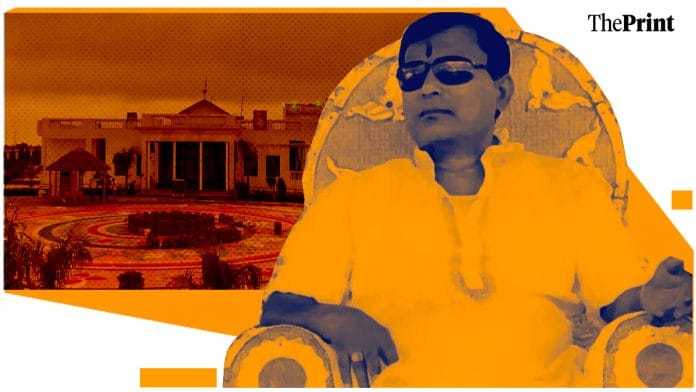Bahadur Nagar (Kasganj): Against the backdrop of tiny brick houses tucked in narrow bylanes, a sprawling white ashram, surrounded by guards dressed in pink, sticks out almost like a sore thumb in Bahadur Nagar, a village in UP’s Kasganj district.
This is the home of Suraj Pal Singh or Narayan Sakar Hari, better known as ‘Bhole Baba’, a former police officer-turned-self-styled godman who gained nationwide infamy after a stampede at one of his satsangs in Hathras left more than 120 people dead.
In a village where most live in abject poverty, many throng his sermons, and consider him a sort of messiah. He never reads religious scriptures at his talks, but instructs people on how to live their lives, and live it like the rich do.
He also has a god complex. According to Neeraj Mishra, an economics professor at Kasganj’s Ganjdundwara College, Narayan Sakar started off by telling the villagers he is an incarnation of Hindu god Shiva, and then transitioned to an avatar of Vishnu who wields the Sudarshan Chakra.
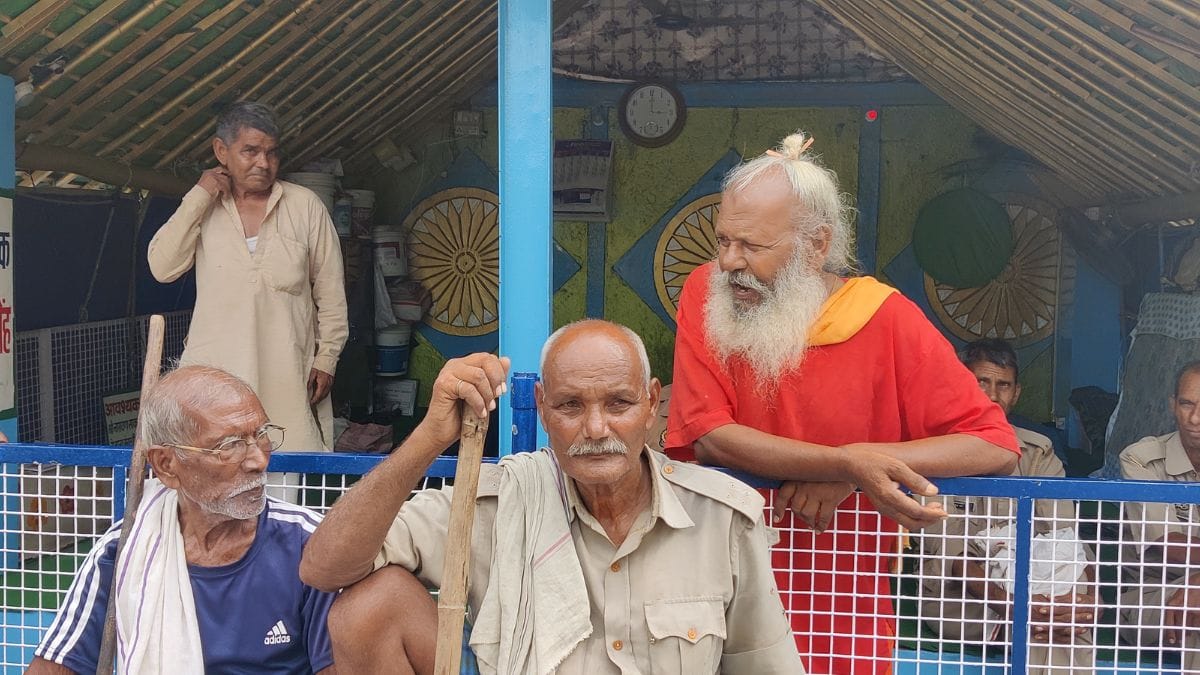
His followers lap up his stories without hesitation. “I have seen it (Sudarshan Chakra) many times. It is colourful and sparks fly out of it,” says 75-year-old Mahori Laal. Another claimed, “Dwapar Yug had Ram, Treta Yug had Krishna, Kalyug has Narayan Sakar Hari.”
There are murkier stories too. Several years ago, the godman had claimed he could bring his niece back from the dead. The girl had fainted, but regained consciousness shortly after, and it was claimed that Narayan Sakar snatched her from the jaws of death.
However, when the girl died shortly after, Sakar and his aides tried to take her body from the crematorium. He and six others were booked under Drugs and Magic Remedies (Objectionable Advertisements) Act, but were later acquitted on grounds of lack of evidence.
But the story stuck, the seed of blind faith had been planted. Today, the godman’s followers rush to collect the soil he walks on, which is believed to be one of the reasons behind the Hathras stampede.
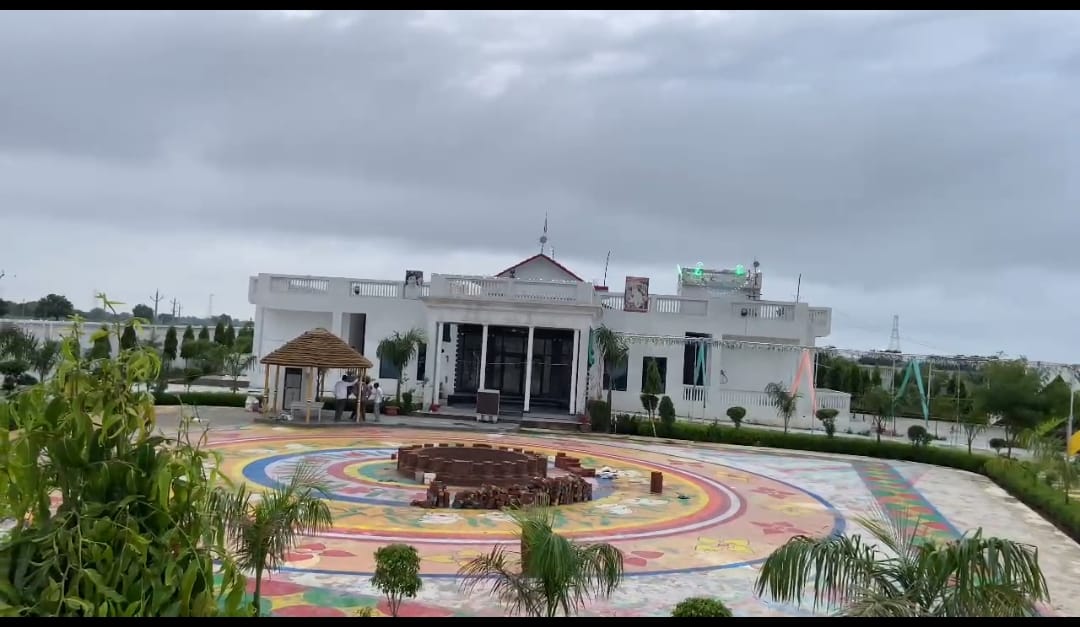
Narayan Sakar himself comes from humble beginnings. Born to a Dalit farmer’s family, he once lived in a small brick house in those very bylanes now dwarfed by his palatial mansion. But since the early 2000s, he is revered for solving “domestic disputes” in the villages of western Uttar Pradesh, blindly worshipped for his “magical powers”.
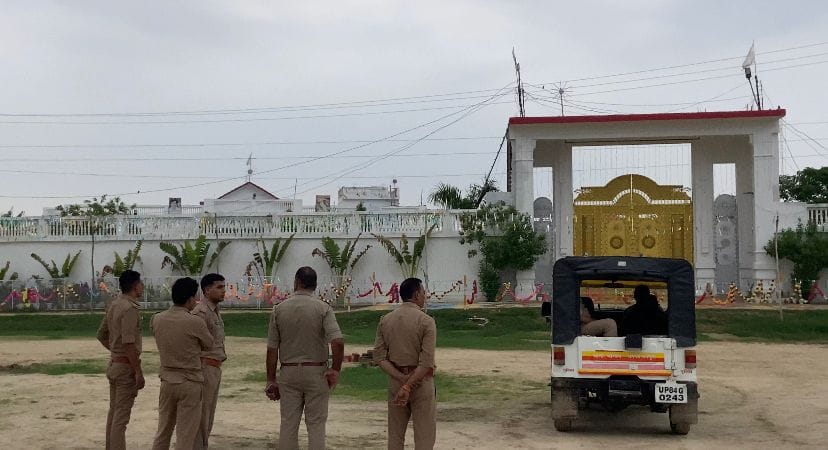
“From DMs, SPs, MLAs to MPs…all administrative powerful men of Kasganj used to come to meet Sakar Hari. They used to bow in front of him in front of all devotees. When such powerful people pay you such reverence, people will automatically respect you more,” says professor Mishra.
Rags to riches
Sakar grew up with three siblings, an elder brother and sister, and a younger brother. While one of his brothers passed away, his sister Swarna Devi and other brother Ramesh continue to live in a small house in the village.
The family has not been given a share of his riches. Dressed in a white sari, Swarna Devi squats at her door. Sakar was always ambitious and eager for success, she says. “He wanted a government job, and didn’t want to live in poverty. Who does?”
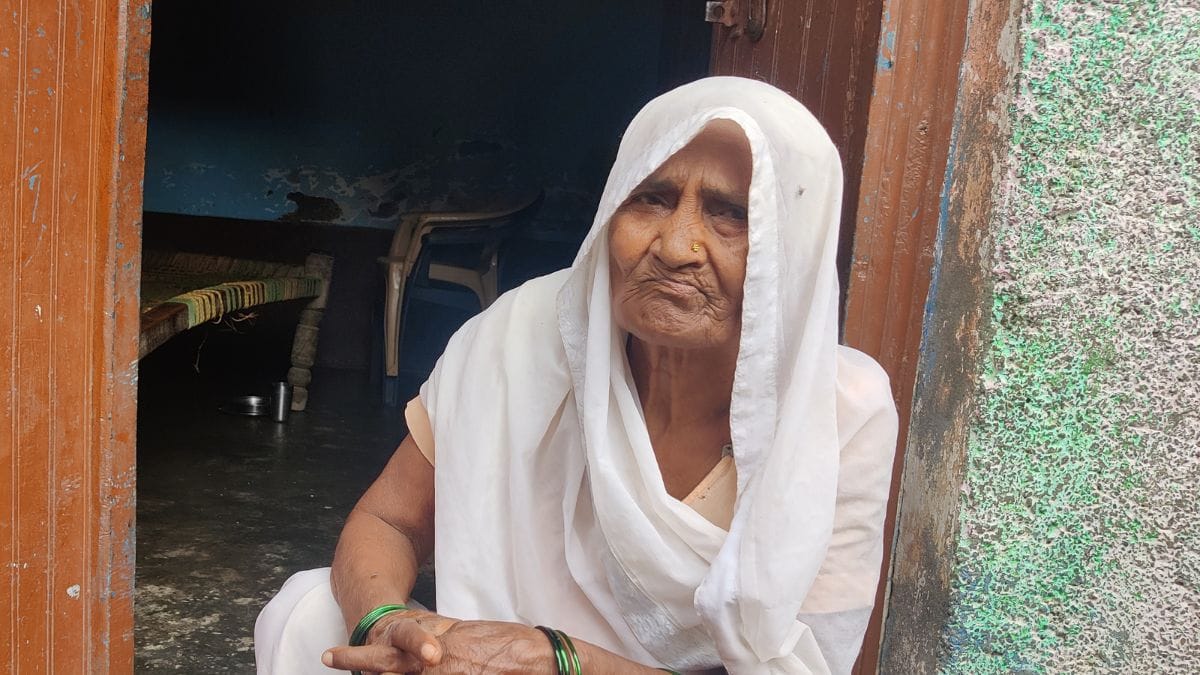
“Saints have to give up on their family, like Gautam Buddha,” says 35-year-old Vishwanath, a farmer.
In the 1990s, Sakar tried for a government job and landed a post in the state police. After a decade of serving in the police, including the Local Intelligence Unit, he realised it was not his calling, and returned to Bahadur Nagar.

Back in his village, he had already gained clout for having served as a head constable. Soon, he started giving sermons in a hut in the village. He would advertise his meetings going from village to village, and gradually gained an audience.
“He used to put plastic sheets on the ground and go house to house, asking people to come and listen to him talk,” recalls Anil Kumar, a young mason who lives right next to Sakar’s ashram.
Soon, people from other villages started attending his sermons, and then from other districts. Then came buses full of people from Rajasthan, Bihar and Haryana.
“He has resolved many family disputes in the village. Once you become his follower, you give up addictions like alcohol and tobacco. He inspires many of us, and he’s now being defamed by the media,” says Kumar.
Sakar was soon seen as a life coach by the poor living in desperate conditions in rural Uttar Pradesh. According to those who have attended his sermons, his talks focus on how to improve financial and social status. His popular teachings include giving up alcohol, meat, caste-based discrimination as well as “arrogance”.
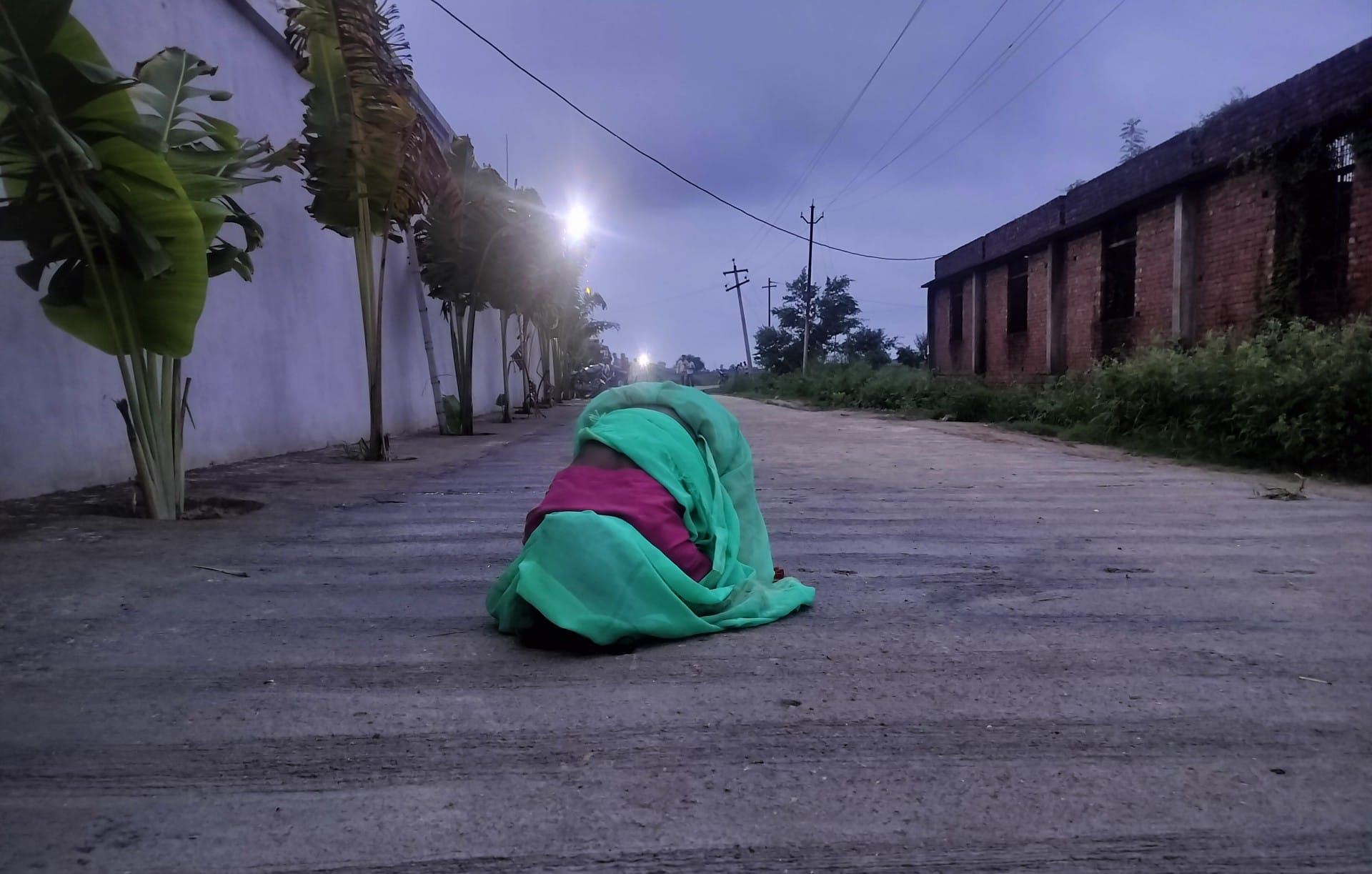
As his popularity in the villages increased, so did Sakar’s wealth. But he continued to be seen by his followers as an incorruptible man.
Today, his cavalcade is as big as that of any prominent politician. Sakar sits in a white Creta that passes through the streets flanked by guards stationed at either side, accompanied by a fleet of at least 7-8 cars.
“The fleet will give PM Modi’s fleet a run for its money,” a follower tells ThePrint.
He also has a huge group of ‘Swayamsevaks’ who volunteer for him. Dressed in pink shirts and pants, or sarees, they offer their services for free, as a way of giving back to their ‘Parmatma’.
Also Read: Six years ago I saw what happened at Bhole Baba’s ‘satsang’ venue. It was chaos
‘Miracles’ & how to live like the rich
Sakar’s followers fill buckets of water from outside his ashram. They bathe in it, cook food in it and drink it, as they believe it keeps them safe from disease.
“I drank that water throughout Corona (Covid pandemic) and nobody in my house fell sick,” claims Kumar, quoted earlier.
In one of his sermons, the godman told his followers that if they earn good karma, it will be like having “a bank with a lot of money”.
“This will help you lead a life like the people who have lots of money in their account, those who don’t have to beg for money whenever they need it. This is how rich people live, the ones who are powerful, posted in high positions of power, respected in society,” he is heard saying in a YouTube clip.
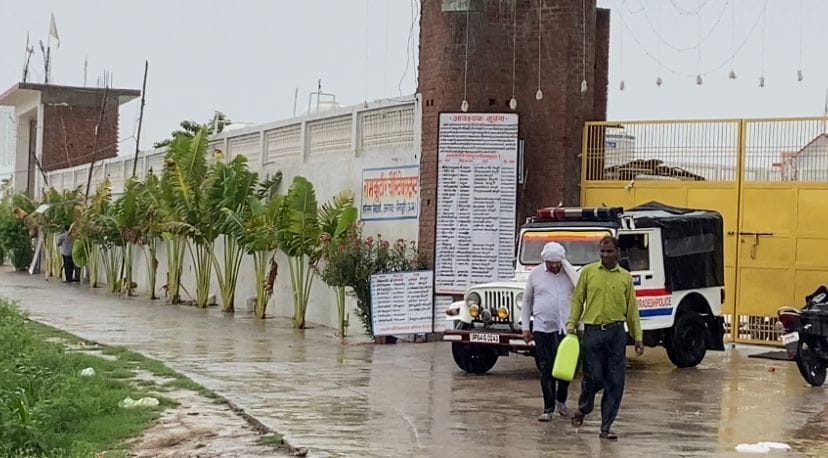
Sakar’s wife, popularly known as ‘Matashree’, accompanies him everywhere, though she hardly speaks at the satsangs. At his gatherings, no mic is turned towards her.
“Does Krishna go anywhere without his Radha? No. That’s why Parmatma roams around with her,” says a follower.
Matashree looks after relationship building. Professor Mishra, quoted earlier, says he once had an argument with Sakar and declared he would never return to his village. “After that argument, Matashree came to my house seeking an apology. She ensured I don’t leave their side,” he tells ThePrint.
On YouTube, many channels have dedicated bhajans (devotional songs) to Narayan Sakar Hari. One of them goes: “Bhanwar mein atki meri naiyya, paar karo saakaar Hari… Saare teerth dhaam aapke charno mein (I’m stuck in a storm, get me out of it, Sakar Hari. All holy sites sit at your feet).” Even his cavalcade is featured in these bhajans.
Sakar himself hasn’t posted anything on YouTube in the last six years. Though wildly popular in rural Uttar Pradesh, he slipped from the radar of political discourse in Lucknow and Delhi. Three Dalit political activists told ThePrint they hadn’t heard of him before the Hathras stampede.
“When I contested elections in 2007, I had asked Hari ji if I could organise a satsang for him. He refused. I’d have won the election if he had agreed to me,” professor Mishra says.
Where does the money come from?
Sakar doesn’t charge anyone money, nor does he personally seek donations. “There’s no chadhawa (religious offering), mithai (sweets), or even a flower that I’m required to buy to worship Parmatma ji. Just a clean heart,” says Pratap Singh, his follower from Firozabad, currently volunteering as a sevadar in Bahadur Nagar.
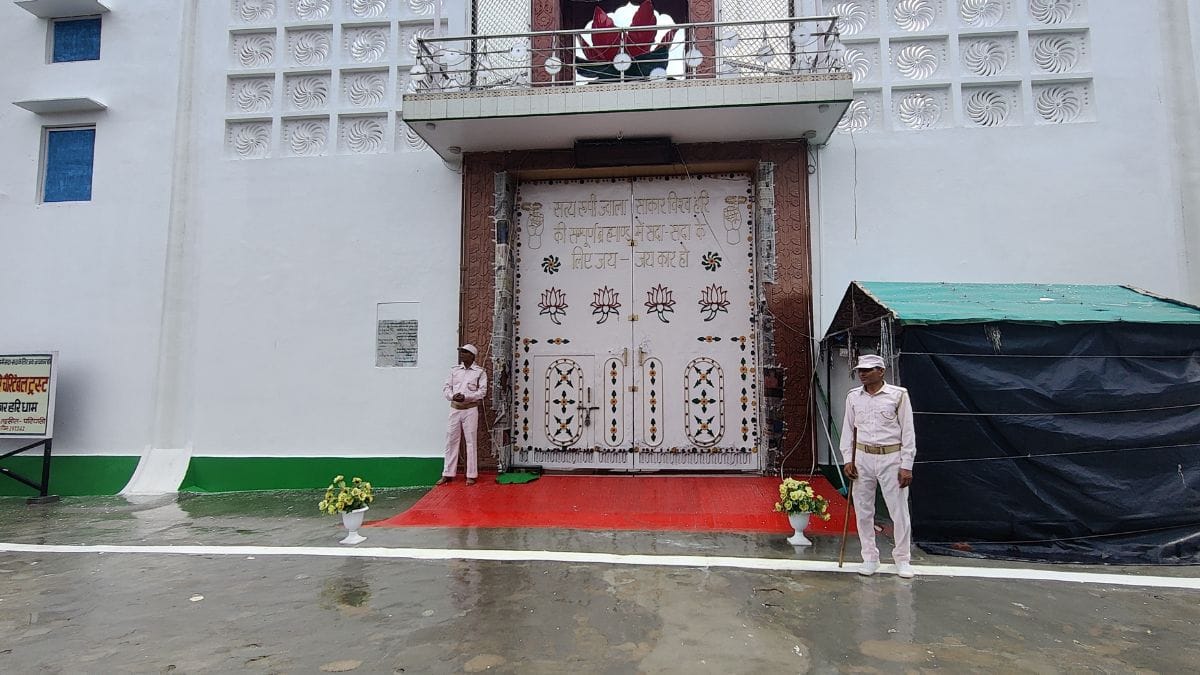
At various ashrams across the state, organising committees collect donations to organise satsangs. People donate money sought by these committees, not directly by Sakar.
“Two days before the satsang, my daughter gave a donation of around Rs 15,000 to those organising the event,” Radha Rani, a follower, told ThePrint in Hathras.
Even as Sakar enjoys unquestioned support in his village where his huge white mansion sits, behind the imposing property, live people with little to no means. “He has the burden of the world to bear, maybe he forgot about the village,” a resident of Bahadur Nagar says with a smile.
With inputs from Heena Fatima
(Edited by Gitanjali Das)
Also Read: Congress calls for law to curb influence of ‘fake’ godmen after 121 killed in Hathras stampede



